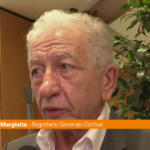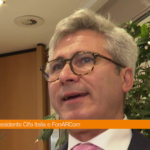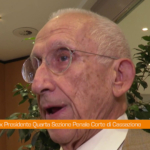Minsk negotiations on February 12th, welcomed by European and Us diplomacies as a necessary first step towards the solution to the crisis in Ukraine, have exposed the fragile agreement upon which the fate of future East-West relations should stand. The long line of “fault” that crosses Europe and divides Ukraine into two opposing fronts, Western and Ortodox, is very obvious because it keeps on claiming many victims and because all the history of the country speaks about discords and clashes. Following independence from the Soviet Union, a century-old complicated integration between Western culture and Slavic culture represented an insurmountable obstacle to forming a nation. Also Ukraine does not have a state anymore.
In the light of prospective for Ukraine and relations between US, EU and Russia, a correct interpretation of Minsk Protocol has to consider the nation failure and the present difficulties of the Ukrainian leadership to maintain the State integrity. Arising from an agreement already signed in September, the outcome of the lengthy negotiations consisted in temporarily limiting the violence and not eliminating it, as confirmed by the latest news from the eastern front of Donetsk and Mariupol. Despite the agreements that were supposed to lead to the cease-fire, the release of prisoners, the withdrawal of heavy weapons and all foreign troops and mercenaries from the Ukrainian soil, at this time the Osce, that according to the second part of the document should have supervised the withdrawal of heavy weapons with the support of the parties involved, has not yet had access to the airport of Donetsk area, controlled by pro-Russian separatists.
On a strategic level, the most significant gaps or ambiguities especially concern paragraphs 9 and 11 of the Protocol that talks about: “restoring the control of the Ukrainian government on the whole conflict zone”, “and the coming into effect, by the end of 2015, of a new constitution whose key element is decentralisation” and also “the approval of a permanent legislation on the future status of particular districts of Donetsk and Lugansk”.
At the moment, the full restoration of state borders by the Ukrainian government is at least uncertain: as is known, the deal is tactfully silent on the previous annexation of Crimea by Putin. West and Russia will have to reshape the new geopolitical Europe map starting from this silence. In front of the threat of democratic Ukraine pro-Eu and pro-Nato, Moscow has played an effective preventive action safeguarding its strategic interests in the area and maintaining control of the military bases located in the Black Sea. As Angelo Panebianco rightly pointed out on Il Corriere della Sera, the weak Western answer not only is dangerous in terms of stabilizing this field, but it may even facilitate all pro-Russian claims from Baltic States to Belarus.
A prior agreement between Brussels, Washington and Moscow on the strategic location of Ukraine will be essential for getting to territorial and political divisions of the country. If Ukraine were divided into two parts, pro-Western and pro-Russian both parts could go their own way, although this would represent a terrible defeat for Kiev. Therefore, it’s clear that the given hint for a federal solution in Minsk requires further efforts to be really practicable. Overlooking Crimea, what would Ukraine international position be? If it were really democratic, could it join Eu and Nato? Will it be able to manage its economic and energy dependence from Moscow?
These questions are essential to prevent to further alienate US and EU from Russia. Putin is still perceiving this separation considering constant warnings against the NATO enlargement and the Western support to Ukrainian democratic movements (e.g. The Orange Revolution). The 21st century paradox, referring to John Mearsheimer, is that the Western elite believes that the realistic logic can be replaced with the liberal principles of the rule of law, economic interdependence and democracy to bring freedom and security in Europe. However, the realistic logic does not necessarily imply the use of force. In reverse, it always needs a suitable balancing of interests and resources to avoid it. Just what has been missing so far.
Barbara Pisciotta is Associate Professor of Political Science at the Department of Political Sciences of Roma Tre University , where she teaches International Relations and International Politics. She wrote three books and numerous essays on the internal and international aspects of democratization of the Eastern Europe countries.







